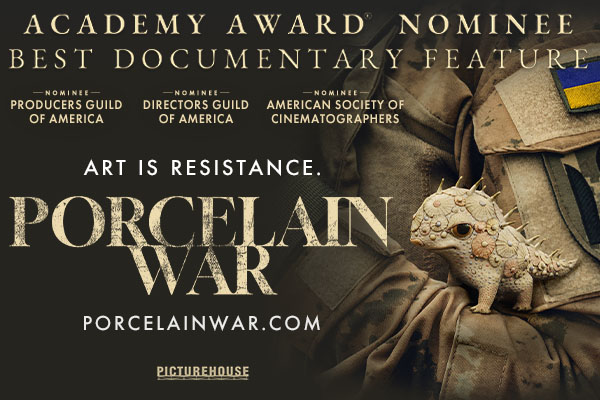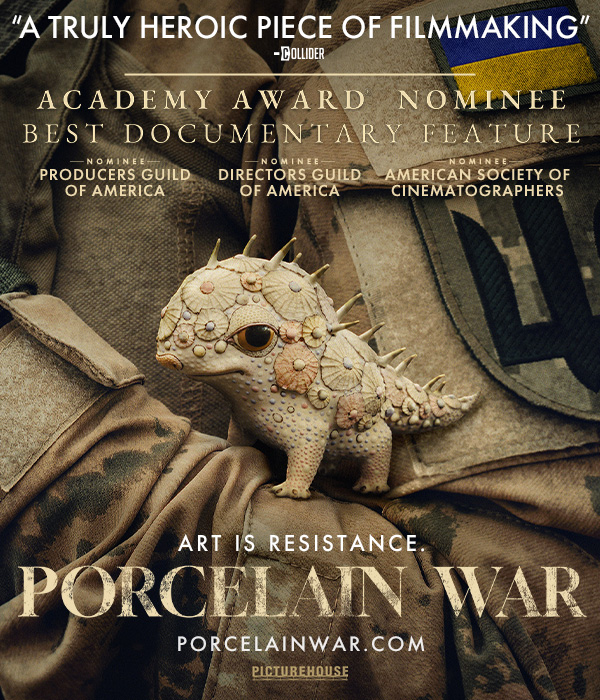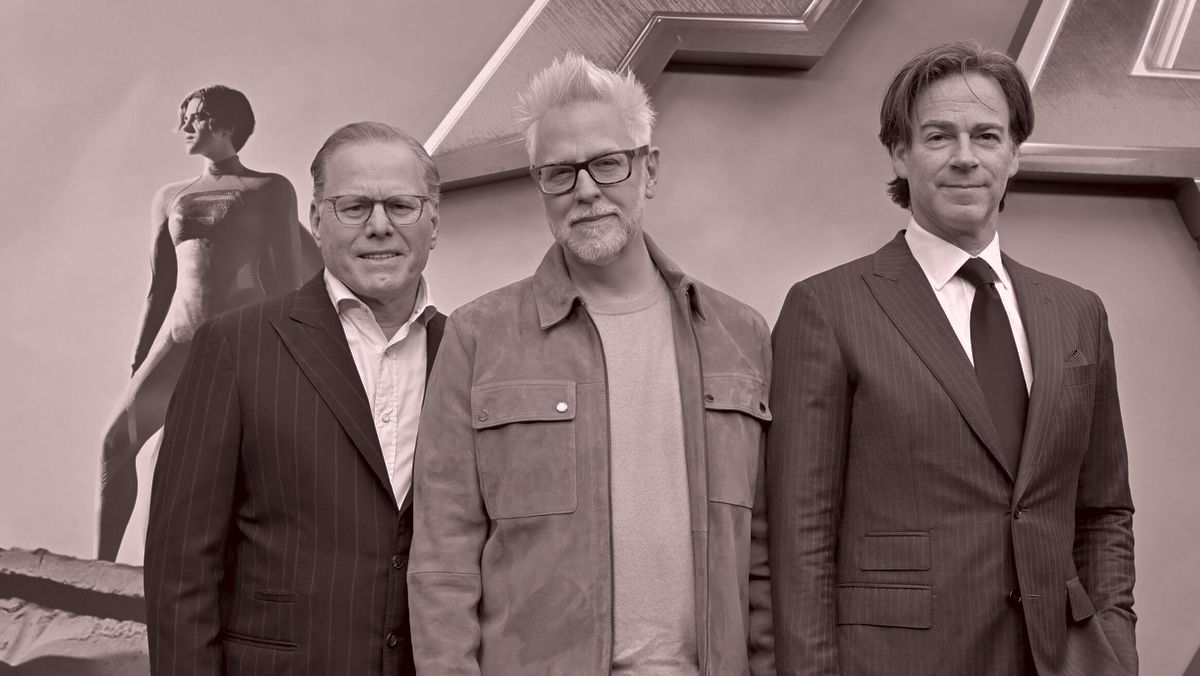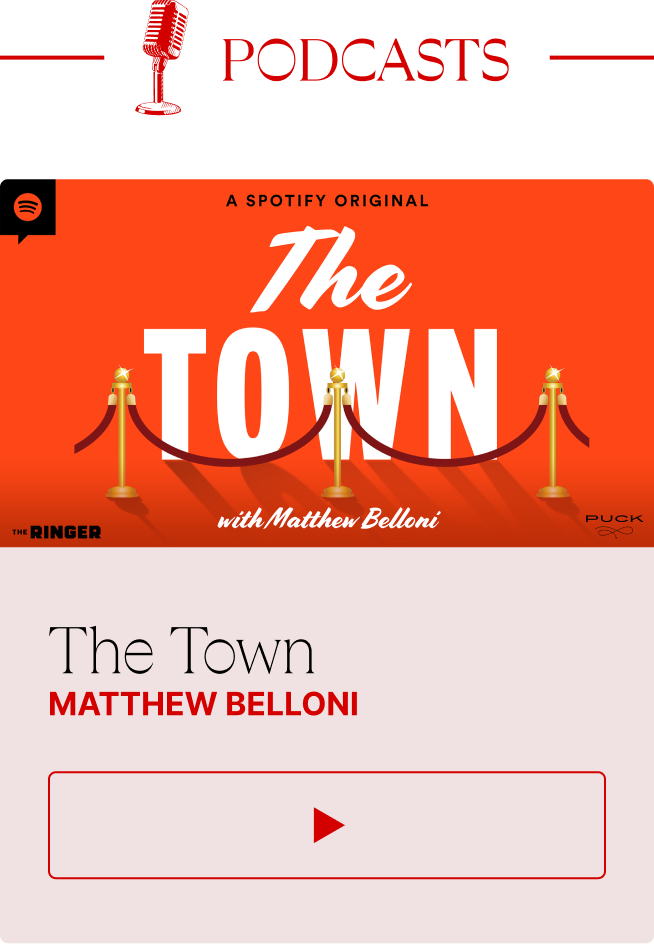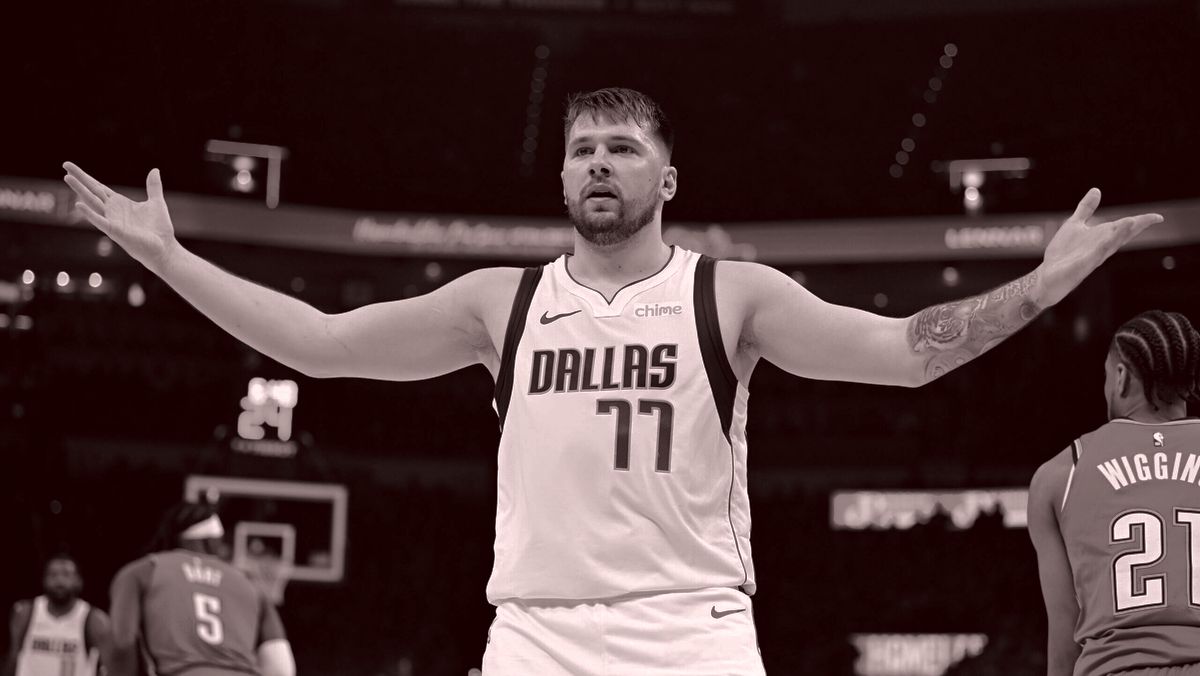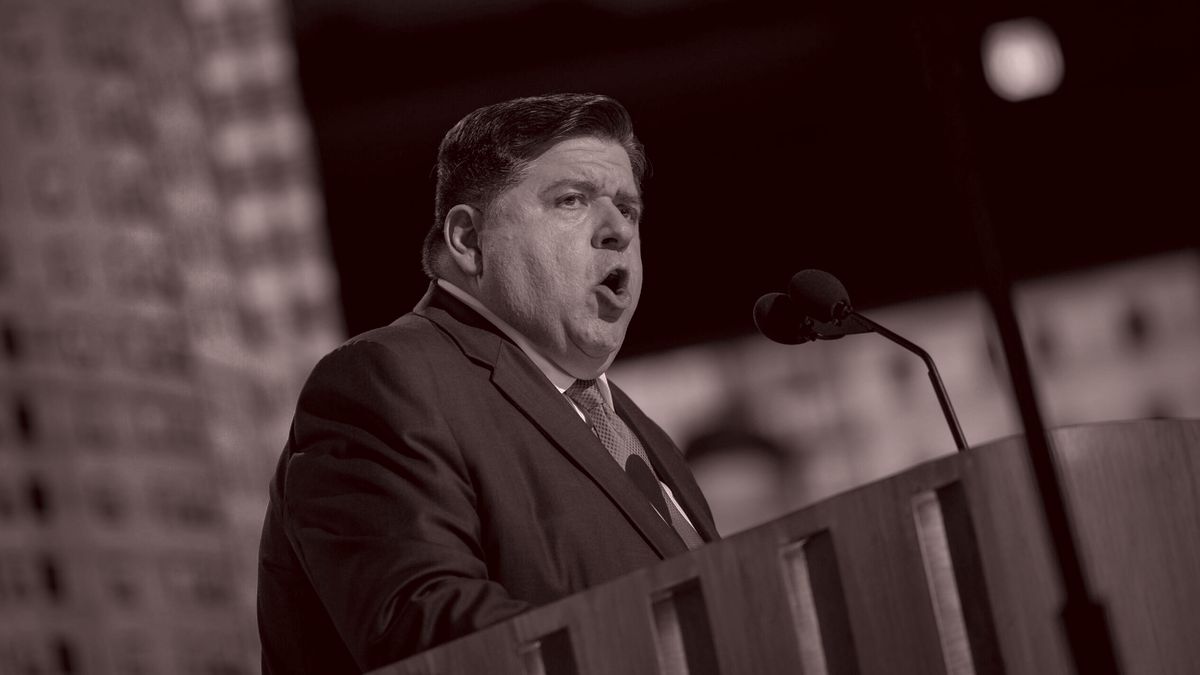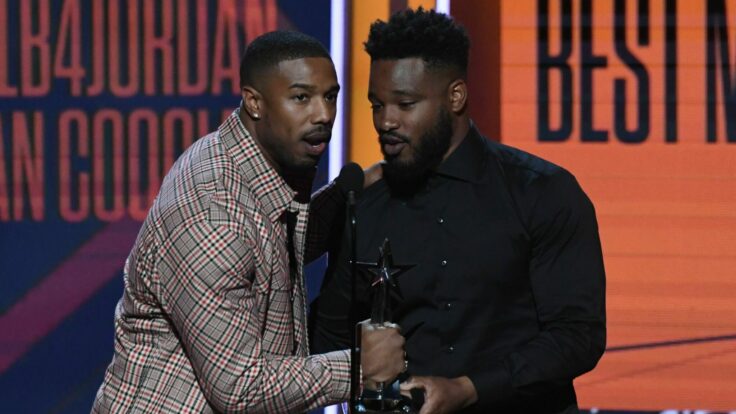Welcome back to What I’m Hearing+, Tuesday’s supercharged
supplement to the usual What I’m Hearing email. Speaking of supers, when I saw the headlines Friday that a co-creator of Superman was suing to stop the release of the new Warner Bros. film in key markets, I didn’t even need to click to know which lawyer was representing the plaintiff.
Marc Toberoff is one of those Hollywood figures that instantly sparks a reaction from those who know him: a hero attorney to the heirs of often
underpaid and disrespected creators? Yes. A notorious bomb-thrower whose copyright “termination” antics have added millions of dollars of costs to global franchise entertainment? Also yes. Marc’s actually a fun guy to chat with if you see him at one of Ari Emanuel’s parties (they’re friends and sometime business partners). But I’m also surprised that a thinly veiled Toberoff hasn’t popped up as a villain in a Marvel or DC movie.
Anyway, Eriq Gardner is back today with a deep analysis of the latest Toberoff lawsuit on behalf of the Joe Shuster family. The ramifications are potentially huge.
Still getting this email forwarded to you? Do yourself a favor and subscribe to Puck—or better yet, email
Fritz@puck.news to get a group rate for your whole office. Your clients will thank you.
|
|
|
A MESSAGE FROM OUR SPONSOR
|
The ONLY Documentary Nominated by
the Academy,
the PGA & the DGA
“Porcelain War is a HAUNTING, yet BEAUTIFUL examination of the ARTISTS who strive to retain their CREATIVITY amidst the crisis in Ukraine.”
-Collider
“In every respect, Porcelain War constitutes an artistic triumph”
-Deadline
“POWERFUL”
– The Toronto Star
“STUNNING”
– Next Best Picture
“POSITIVELY LUMINOUS”
– The Moveable
Fest
WATCH HOW THE FILM TEAM GOT CAMERAS INTO UKRAINE
More than 50 Awards and Recognitions
including…
Sundance Grand Jury Prize: U.S. Documentary
2025 duPont–Columbia Award Winner
CINEMA FOR PEACE DOVE AWARD Finalist
“A beautiful film showcasing the power of art.”
– Yahoo
|
|
|

|
Eriq Gardner
|
|
- Shari’s dance with
The Don: Shari Redstone is no fool, yet it may be magical thinking for her to assume that settling with Donald Trump over his meritless $10 billion lawsuit against CBS News could smooth F.C.C. approval of her Skydance-Paramount deal. Apart from the internal drama—60 Minutes executive producer Bill Owens and his staff pushed back hard against a potential payoff over alleged “election interference,” as my partner
Dylan Byers detailed—I’m told that F.C.C. chairman Brendan Carr may not readily abandon his regulatory leverage point by quickly signing off on the sale.
And remember, the F.C.C. is, by design, an independent agency. While Trump might attempt to sway Carr on social media, any settlement would likely amount to little more than an expensive bet that alienates CBS staffers and, indeed, encourages yet more lawsuits—no matter how specious—against news organizations.
Redstone, meanwhile, is bracing for more scrutiny. As I’ve previously reported, Rhode Island’s pension fund is a Paramount shareholder, and the state treasurer has been looking into
whether Redstone unduly directed potential buyers toward National Amusements—her family holding company, which controls Paramount—rather than Paramount itself. Last week, the Delaware Court of Chancery ruled that Redstone must hand over texts and emails to the treasurer, stating that the request was a “proper purpose” and dismissing concerns about the credibility of anonymous sources who appeared in The Wall Street Journal and…Puck.
If Redstone does orchestrate a
settlement with Trump, it wouldn’t be surprising if Paramount shareholders then seek to hold her accountable, possibly even demanding she foot the bill. After all, this latest decision out of Delaware follows one last month in which a judge greenlit a shareholder case against the Murdoch family regarding Fox News’s $787 million settlement with Dominion.
- An A.I. helper at the Oscars: No, the use of A.I. on The
Brutalist and Emilia Pérez won’t cost them an Oscar. But as far as I can tell, neither production disclosed the A.I. assistance on its copyright registrations, despite guidance from the Copyright Office. In fact, almost no one in Hollywood is admitting to an A.I. assist. Credit where it’s due, though—Sony Music fessed up about a recent Billy Joel music
video.
Fortunately for The Brutalist and the rest of the industry, the Copyright Office just issued an important report that leaves the door open for protection on A.I.-assisted works—so long as a human is doing the heavy creative lifting. Prompts alone don’t cut it, but meaningful human input—what
that means, exactly, is a fight for another day—is enough for protection. At least the Copyright Office is well-positioned to handle the inevitable legal battles. As part of the Library of Congress, it is (theoretically) beyond the reach of Elon Musk and his DOGE droogs.
|
|
|
And now, a threat to foreign trade that has nothing to do with tariffs and
everything to do with copyrights…
|
|
|
Copyright nemesis Marc Toberoff is looking to block Warner Bros.’
summer blockbuster from taking flight in key international markets. But the consequences of his lawsuit could be legal kryptonite for other studios, too.
|
|
|
The lawsuit claiming Warner Bros. has lost foreign rights to the
Superman character could affect much more than this summer’s planned relaunch of the franchise. Of course, most of the headlines about the case have centered on the ramifications for James Gunn’s anticipated July 11 tentpole, Superman, which is intended to jumpstart the studio’s revamped DC universe. But Friday’s complaint, filed by longtime Warners nemesis Marc Toberoff, could be legal kryptonite for other studios, too. If Toberoff prevails, the estate
of Superman co-creator Joseph Shuster won’t be the only one to take advantage of the fact that—in territories including the U.K., Canada, and Australia—25 years after an author’s death, copyrights revert to their estate.
Say Toberoff wins: Could Paramount be forced to reassess its overseas control of Star Trek, given that creator Gene Roddenberry’s death, in
1991, is far outside the 25-year window? What about Disney’s global grip on Planet of the Apes, whose creator, Pierre Boulle, died in 1994? Meanwhile, Universal faces a ticking clock of its own: The 25th anniversary of Bourne Identity creator Robert Ludlum’s death is March 12, 2026.
Legal observers are also overlooking how this new Superman suit could threaten the international
distribution of older movies and TV shows. In the U.S., when an author, or their estate, invokes copyright law’s termination provision to reclaim rights to their works, the studio is allowed to continue to distribute previously produced movies and properties based on those works—this is known as the “derivative works exception.” However, it’s not clear the same principle is recognized elsewhere—meaning, for example, that if Toberoff reclaims Superman rights for his client, Warner Bros.
C.E.O. David Zaslav could run into trouble distributing the company’s entire Superman library internationally—everything from the Christopher Reeve classics to the Smallville TV series to Dwayne Johnson’s Superman-adjacent Black Adam movie.
|
|
|
A MESSAGE FROM OUR SPONSOR
|
The ONLY Documentary Nominated by
the Academy,
the PGA & the DGA
“Porcelain War is a HAUNTING, yet BEAUTIFUL examination of the ARTISTS who strive to retain their CREATIVITY amidst the crisis in Ukraine.”
-Collider
“In every respect, Porcelain War constitutes an artistic triumph”
-Deadline
“POWERFUL”
– The Toronto Star
“STUNNING”
– Next Best Picture
“POSITIVELY LUMINOUS”
– The Moveable
Fest
WATCH HOW THE FILM TEAM GOT CAMERAS INTO UKRAINE
More than 50 Awards and Recognitions
including…
Sundance Grand Jury Prize: U.S. Documentary
2025 duPont–Columbia Award Winner
CINEMA FOR PEACE DOVE AWARD Finalist
“A beautiful film showcasing the power of art.”
– Yahoo
|
|
|
Toberoff, as entertainment lawyers know, has made something of a career out of
trying to wrest Superman rights away from Warners. More than a decade ago, an appellate court appeared to end his quest, but one should never count out a highly persistent foe. He also has a broader history with Warner Bros.: Two decades ago, he persuaded a California judge to halt the release of a Dukes of Hazzard movie,
resulting in Warners forking over a $14 million settlement to his client, a producer on the ’70s film upon which the original TV show was based. More recently, he got himself a producer credit on Warners’ Beetlejuice Beetlejuice after sending a copyright termination notice and negotiating a deal. He’s now looking to add to those successes.
Perhaps the most striking aspect of Toberoff’s latest gambit is that it’s all so novel. You’d expect someone to have tried this before, but
there doesn’t seem to be much precedent on how movie rights square with the so-called “Dickens provision”—the automatic 25-year authorial rights reversion inspired by a penniless-when-he-died Charles Dickens, which is now written into copyright law everywhere from Ireland to South Africa. While there may be reasons—e.g., Canada only recently extended its copyright term from 50 to 70 years, altering the cost-benefit analysis of pursuing reversionary rights—the
unprecedented nature of the situation indicates that this probably won’t be an easy or straightforward case. Frankly, that’d be so even if the Superman rights didn’t already have a complicated legal backstory.
|
Back in 1938, Shuster and his writing partner, Jerry
Siegel, without the benefit of legal counsel, sold the rights to their fledgling superhero to Detective Comics for $130. Shortly thereafter, Action Comics No. 1 rocketed Superman into the cultural stratosphere—“faster than a speeding bullet, more powerful than a locomotive”—detailing his origin story and many of the character elements that would become iconic in TV shows and movies decades later. But despite Superman’s ubiquity during their lifetimes, both Schuster and Siegel
would die with little in their bank accounts. Upon Schuster’s 1992 death, his widow sought Time Warner’s assistance to settle his debts. The company increased an annual stipend from $5,000 to $25,000, while extracting a promise that she wouldn’t pursue a return of Superman rights.
Warner Bros. thought it had a deal with Siegel’s family too, but in 2001, Toberoff showed up claiming expertise on a then-esoteric slice of copyright law that allowed
heirs to terminate copyright grants decades after signing. Toberoff disavowed any prior settlements and sparked a legal slugfest that lasted 12 years. By 2008, Toberoff appeared to be on the verge of a landmark success, with a federal judge declaring that the Siegels could reclaim rights to any aspects of the Superman character that had appeared in
Action Comics No. 1.
A few years later, though, Toberoff was on the defensive, with Warner Bros. countersuing him for tortious interference, alleging his motives were profit-driven, even surfacing what had, until then, been a secret partnership with super-agent Ari Emanuel. (The two had set up a
venture called IP Worldwide, expecting they’d soon be the exclusive licensor of Superman rights. That never went anywhere, but they remain friends. As I recently reported, Emanuel referred Elon Musk to Toberoff to take on Sam Altman.)
That storied legal battle all but concluded in 2013, when the 9th Circuit affirmed that the agreements made by the Siegels and Shusters with Warner Bros. prior to Toberoff’s involvement superseded the original 1938 deal, thus re-granting Warner Bros. the rights to Superman. There were some issues left on the table, but as I recall, everyone was exhausted from a dozen years of combat, and the litigation wrapped up quickly thereafter, seemingly for good.
Now,
Toberoff is taking pains to explain why this lawsuit sequel isn’t just a retread. Clearly, he’s gearing up for Warner Bros. to argue that this ground was covered ages ago and paint him as vexatious. Toberoff is preemptively striking by emphasizing that courts explicitly stated that the parties weren’t resolving foreign rights in the previous litigation. Moreover, he notes that foreign reversionary rights could not be exercised until 25 years after Shuster’s death, rendering any
agreements his widow made in 1992, before an estate was even set up, irrelevant.
Toberoff may be putting the cart before the horse, though. For starters, I expect Warner Bros. will contest being hauled into a New York federal court to adjudicate global rights. After all, if Israeli law has something to say about rights reversion, shouldn’t an Israeli court weigh in? The same logic applies to Australia, Hong Kong, India,
etcetera. Thus, Warner Bros.’ legal team is likely to challenge the jurisdiction, questioning whether an American judge even has the power to enforce an injunction halfway around the world.
Down the road, a court might address whether Shuster’s widow inadvertently relinquished any future claims that her heirs could have on Superman. While there’s a scarcity of reversion cases involving movie rights, there are precedents—such as a 2016 decision by the U.K.
High Court that denied Duran Duran the right to reclaim publishing rights to its early songs—which might offer Warner Bros. some hope that a contract could supersede anything else.
Reaching that point, however, could require a protracted and expensive journey, especially if Toberoff, now 69 and practicing solo in Malibu, needs to navigate these issues across various
international courts. I have to wonder if his neatly packaged case in New York, demanding a declaration of global rights, is his low-budget attempt to pressure Warner Bros. into a swift settlement. (He told The Wall Street Journal he wasn’t looking to deprive fans of Superman, but rather “seek just
compensation for Joe Shuster’s fundamental contributions as the co-creator of the character.”) He’s brokered numerous deals before, securing those producer credits on sequels to Beetlejuice, Bad Boys, and Predator. He also struck a significant deal with Disney a couple years back when he seemed poised to
disrupt the Marvel Cinematic Universe. If Zaslav decides it’s simpler to cut a small check and give him a nod in the end credits, would it really be so surprising to see this one wrapped up with a handshake between a studio and its longtime nemesis? Toberoff might even get invited to the premiere.
|
Thanks, Eriq. I’ll be back on Thursday evening.
Matt
|
|
|
Puck founding partner Matt Belloni takes you inside the business of Hollywood, using exclusive reporting and
insight to explain the backstories on everything from Marvel movies to the streaming wars.
|
|
|
Puck’s daily art market email, anchored by industry expert Marion Maneker, offers unparalleled access to the
mega-auctions and galleries, elite buyers and sellers, and the power players who run this opaque world. Wall Power also features Julie Brener Davich, a veteran of Christie’s and Sotheby’s, who provides unique insights into how the business really works.
|
|
|
Need help? Review our FAQ page or contact us for assistance. For brand partnerships, email ads@puck.news.
You received this email because you signed up to receive emails from Puck, or as part of your Puck account associated with . To stop receiving this newsletter and/or manage all your email preferences, click
here.
|
Puck is published by Heat Media LLC. 107 Greenwich St, New York, NY 10006
|
|
|
|


